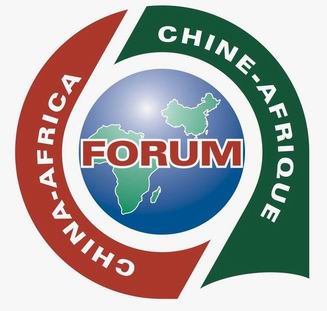The recent China-Africa Cooperation Forum held Sept. 4-6 and the U.S.-Africa Leaders Summit and African-EU (European Union) Commission held in 2022 have all become important events on the African international relations calendar.
In the case of the much sought-after China forum, more African leaders attend this annual forum than the United Nations General Assembly. However, it is problematic that the African heads of state attend these summits as individual nation-states instead of as a solid bloc representing the interest of the continent.
“For its part, Africa has not been proactive and still engages with Beijing in an individualized and haphazard manner,” wrote Bhaso Ndzendze, associate professor of International Relations at the University of Johannesburg.

Ndzendze, in the Sept. 2 edition of the online publication TheConversation.com, in a piece titled: “China reaps most of the benefits of its relationship with Africa: what’s behind the imbalance,” makes it clear that the benefit to China outweighs the benefits to Africa.
According to Ndzendze, “One of the many hindrances to following a single African strategy towards China,” (that includes Africa’s interaction with all international forums, no matter the country) “is the number of countries on the continent.
On the face of it, this would appear to be an advantage for Africa: more than 50 states against one. However, the advantage is towards China, which operates as a single actor and can have a coherent set of objectives across governments over a long period.”
Another issue in the Africa-China relationship is the weakness of the African Union.
“The reality is that most African states prefer individual sovereignty over a pooled approach. The AU Commission chairperson has no special privileges or directive powers over the African position at the China forum,” noted Ndzendze.
The Honorable Minister Farrakhan, National Representative of the Most Honorable Elijah Muhammad, shared powerful and prophetic remarks in Gabon in 1993 at the African African-American Summit, in front of 19 African heads of state. The gathering was hosted by Rev. Leon Sullivan. The Minister’s remarks, then about what ails Africa, still ring true today.
“We do not communicate with each other, therefore, an enemy gets between us and represents me to you and you to me and we never get together to strengthen our bond of unity,” Minister Farrakhan said.
“We don’t think like free men. We go to the capitals of America and Europe, like paupers, weak to demand or ask for what unjust regimes will never give, unless we develop power to force unjust governments to yield to our just demands.”
During his address, the Minister, referenced both the Bible and Holy Qur’an to encourage the leaders at the summit to seek a higher power than the neocolonialism that continues to deny Africa its ability to unify and realize its full potential.
Minister Farrakhan, a divinely guided man, prefaced his remarks by encouraging the leaders to “never open a summit or close a summit without calling on the Lord of Creation for His help.” Discussing the root of Africa’s troubles, the Minister stated, “The problem in the world today is not the followers or the people.”
He explained, “The problem in the world today is with the leadership. The Bible teaches: ‘If the blind lead the blind, both fall in the ditch.’ If our leaders are spiritually blind and morally bankrupt, then we have no right to lead our people.”
He added, “We are here at a summit because each one of us is losing power, authority, wealth, self-esteem, and the dignity of our own humanity because we’re in a new form of slavery called debt. Surely, man is in loss. Why, because we are not aware of the time.
It is not the time by our watch, but the time by Allah’s (God’s) measurement of time. What time is it? We are at the time of the end of White supremacy. We are at the time of the end of White domination of the darker peoples of the world. We are at the time of the end of racism, sexism and materialism.”
Minister Farrakhan cautioned the leaders about holding on to a neoliberal mindset.
Senegalese economist Dr. Ndongo Sylla explained what he sees as a conflict of interest with African leaders. “Most of the people who serve as prime ministers or ministers of finance come from global financial circles—and they will never go against the interest of global finance.”
During a forum sponsored by The World Bank Live, Andrew Dabalen, a chief economist for the Africa region of the World Bank, explained how Africa’s debt has surged to crises proportions.
During his brief talk spoke Dabalen spoke on the “fragility” of Africa’s economic plight.
“This is where the fragility comes, and there are three reasons why it’s very fragile. One is many countries still carry very high levels of debt. Debt service costs and liquid and cash flow problems are massive. Just to give you a marker, last year, on average, African countries spent 46 percent of their revenues on servicing debt,” he said.
“That puts a lot of squeeze on public finances to finance education, health, infrastructure that we needed … . That is still a problem that has not been resolved. Second, alternative sources or supplements, finances that usually could supplement public finances when they are not available,” have all but dried up, Dabalen added.
Follow @JehronMuhammad on X













